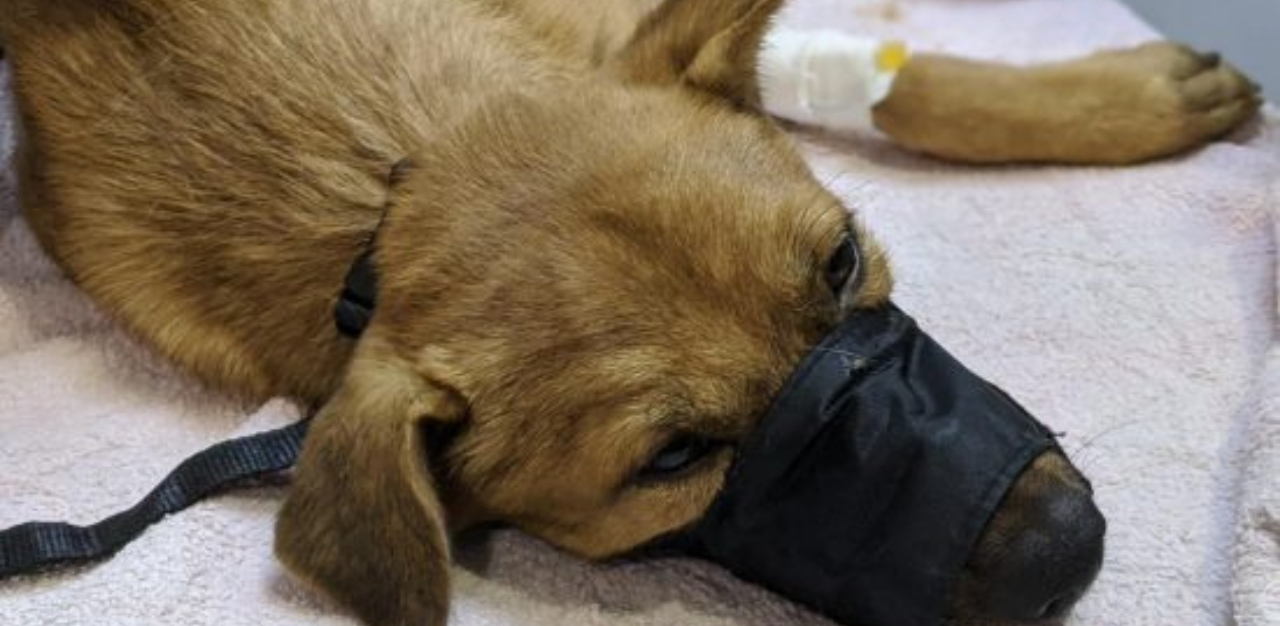It used to be when you decided that you wanted an animal companion in your life, you just stroll down to the SPCA, fill out some paperwork, give an optional donation, and walk out the same day with the new pet of your choosing, ready to bond and share your space.
Not any more – even though the call is still “adopt, not shop”.
As animal lovers, many would want to adopt as adoption means saving lives and not supporting puppy mills. Many also want to help and give these animals good homes, if circumstances allow for it.
In Singapore, animal welfare issues have gained prominence in recent years, reflecting civic consciousness and a maturity about the treatment of animals. There are numerous animal welfare groups, such as Voices for Animals, SOSD, Cat Welfare Society, and Purely Adoptions, that organise adoption drives.
However, potential pet adopters are complaining that adopting a pet from local shelters is “surprisingly difficult”. A local reddit thread blew up with numerous netizens citing the various “roadblocks from the shelters themselves”, such as not replying to emails and messages, inconsistencies in assessing suitability, and “elitist” attitudes.
While the goal of these shelters’ is to rehome as many animals as they can so that they can make room for more, are they being too militant when it comes to checking out the adopters’ residence and assessing their families to ensure the charges are going to loving homes? Are their militant attitudes driving potential adopters to where they are trying to prevent them from going – the pet store?
Frustrations from potential pet adopters

Ms Sally Kong had wanted to adopt a dog because her son objected to buying one. Her previous dog was adopted from a shelter and Ms Kong, 65, cared for it for eight years before it died in November 2019 from a stroke.
Seeing that there is always a plea from shelters to adopt their charges, Ms Kong opted to get her next dog from one. She was then looking for a dog that is about “five years or older” and below 20kg – because she could not handle a heavy dog and did not want puppies as she was “not sure how big they will grow”.
But when she approached the local shelters, she was either met with silence or questioned “rather aggressively by the volunteers”.
Ms Kong says that she has no issue with filling in detailed questionnaires, as she knows they care for the animals and “can see where they are coming from”, but she finds that some of the questions were “very intrusive”, like whether she was “getting a divorce”.
The lack of response from other shelters was also frustrating. Despite registering to adopt, she did not receive any acknowledgement yet that shelter continues to post pictures on Facebook asking for good homes for its rescued dogs.
Ms Kong says she filled up the same form twice for Voices for Animals (VFA) in October 2020, stating her intention to adopt, but she was met with silence. Later, VFA had another adoption drive and Ms Kong tried to complete yet another form to indicate her interest, “but the system rejected [me] as [my] records are already there”.
She also had one of the shelters deemed her “ineligible without any reason”, even though she did not have any bad record and had a shelter dog until it died from old age.
“If I was rejected as an applicant, I would like to know why so that I know where I have fallen short and whether there is anything I can do about it,” she says.
Ms Kong adds that she went with friends to see a dog that they were interested in, and the shelter put them in competition with another potential adopter “for the best owner”. Ms Kong feels this was unnecessary as they were there for the dog, not the “competition” and would rather be directed to a dog at the same shelter that was not receiving enough attention.
With all the hassles she faced from shelters, Ms Kong was forced to turn to buying.
During the Covid-19 pandemic, most pet shelters in Singapore say they are full and unable to take in more animals as adoptions have dropped. Adoption drives were cancelled to prevent large crowds from gathering, coupled with the paranoia that pets could carry the coronavirus and the unwillingness to commit for fear of losing their jobs.
Still Ms Kong says it is important for shelters to be “responsive”. “The adoption process can also be simplified. When I adopted nine years ago, there were also visits and trial periods, but now it seems more like a competition for the best owner,” she says.
Like Ms Kong, Jennifer, who declined to give her full name, says that the lack of responses was one of the main difficulties she faced wanting to adopt.
“After losing my dog, I was devastated and thought that one of the best ways to help me get over my grief was to adopt another dog instead of buying a puppy,” the 40-something woman says.
“I offered to help care for aging dogs. However, after messaging Voices for Animals (VFA), there was no response. They only mention in their Facebook posts that we can look out for the next adoption drive,” she adds.
Jennifer also points out that it is almost impossible to adopt a smaller dog at the adoption drive because the smaller dogs would already have been adopted because “someone knows someone there”.
“Don’t be elitist – not everyone can adopt [big dogs] and may have bought puppies [before]. Do not base your selection on adopters according to connections as well,” she adds.
Adopters need to understand the struggles of shelters too
Founder of Voices for Animals Derrick Tan calls for more understanding from potential adopters.
“The team managing VFA are all volunteers. Sometimes, we get requests to view the dogs but we do not have volunteers to facilitate the viewing and adoption process. So that’s why we can only carry it out on certain dates,” he tells TheHomeGround Asia.
With the new COVID-19 safety measures, Mr Tan adds that adoption drives cannot have too many people and VFA could only arrange three to four visitors at a time.
Mr Tan says that VFA’s Facebook page is also “flooded with messages”, many of them asking for specific breeds and ages, which Mr Tan finds it difficult to reply to.
“We only have ex-breeding dogs, older dogs, and once we see that potential adopters are looking for puppies, our Google forms would have filtered them out,” he says.
“Given the overwhelming demand, we want to prioritise adopters who do not put us as their second choice and want to provide genuine homes for our dogs that have lived at the shelter for too long and require the most attention and medication,” he adds.
According to Mr Tan, rescuers might have been aggressive, but at the end of the day, they “just want the best for [the] animals and the point of rescuing them is to get them a good home, and that is their job” .
Strict requirements are necessary for rescued dogs

Ms Kieran Kua, Head of Operations at SOSD (Save our Street Dogs) Singapore, says the main concern when rehoming dogs is that they want their dogs to be treated as family, hence the strict criteria when adopting a dog.
She says challenges such as behavioural issues in the dog, changes in caregiver’s lifestyle or financial situation, and moving to a smaller home may arise, but SOSD hopes adopters can and will continue to care for their dog just like they would a family member.
Another huge concern is the fear of adopters losing the dogs, as many may escape when adopters are not careful. SOSD therefore requires the adopters to have the right equipment, such as the right collar and leash, baby gates and location trackers, ready before bringing the dog home.
Depending on the individual dog and handling skills of the potential adopter, SOSD may ask the adopter to meet the dog “a few times” to practice handling it to reduce the risks of losing the dog on walks when trial homestays start.
“Window grilles are also another criteria, as we’ve had one too many dogs jump to their death from high rise homes. It’s just a risk that we are unwilling to take,” Ms Kua adds.
Nee Soon GRC MP and founder of ACRES (Animal Concerns Research and Education Society) Louis Ng brought up the issue of convenience euthanasia.
“Sometimes, the dogs are adopted out [and] in the end, they are euthanised even though they are healthy, instead of returning them to the shelters,” he says.
Mr Ng says the checks in place for adoption need to be stringent to safeguard the welfare of the animals and also the people who are adopting to make sure that they understand how to look after the animals.
“There are cases when dogs start biting and it’s usually not just the dogs’ fault, but how they were brought up. The Animal Welfare Groups (AWGs) and NParks are trying to go upstream to ensure stringent checks so people understand owning a pet is a life-long commitment,” he adds.
Ms Kua says that at the end of the day, all they want is for dogs to go to homes that will love them dearly and keep them safe.
“I can’t speak for all rescuers, but for SOSD, our requirements were put in place due to our years of experience in adopters returning dogs to us, having dogs jump out of windows and lost dogs,” she says.
“If we did not put in these measures, these dogs’ fates would have been in vain. We must learn from our lessons and do better for future dogs.”
Another issue that Ms Kua would like adopters to understand is that the types of dogs at shelters may be different from the previous dogs these owners might have been used to.
Dogs at shelters might have self-preservation survival instincts that increase the likelihood of them showing aggressive or flight behaviour.
“As people who understand them most, it’s our job to guide potential adopters along to ensure the dogs’ well-being,” she adds.
SOSD currently has approximately 300 dogs under its care, and averages about 20 adoptions a month. Ms Kua says that it wants as many dogs to be adopted as possible as there are still many out there waiting to be rescued. Unless the number of dogs in the shelter is reduced, there is no room for them to rescue more.
Pet ownership is a huge responsibility

(Photo source: Pet Lovers Centre)
Regardless of whether pet owners are buying or adopting a pet, Ms Kua says that they should be prepared for the responsibilities of that ownership. If they decide to buy a dog, for instance, Ms Kua hopes that they will find one with temperament that is a good fit for their family, and that they do their due diligence while looking for a responsible breeder.
“Dog ownership is a huge responsibility and can be time-consuming on its own. Potential dog owners should be prepared to fork out time on a daily basis to care for and spend time with the dog, so if they’re reluctant to go through the process of acquiring the dog, they might not be suitable to keep one in the first place,” she adds.
Mr Ng says that they’re trying to make sure that even businesses like pet shops, not just the adoption shelters, will ensure that people are able to look after the animals before they sell the puppies or kittens to them. Some of the retailers are already putting up signs to ensure that people understand the level of commitment before they buy pets.
“Even at the pet shops, there should be checks and balances in place. The guidelines need to be implemented for everyone,” he says. “Businesses have the responsibility to let pet owners know the commitment required and how to take care of animals.”
Join the conversations on TheHomeGround Asia’s Facebook and Instagram, and get the latest updates via Telegram.














